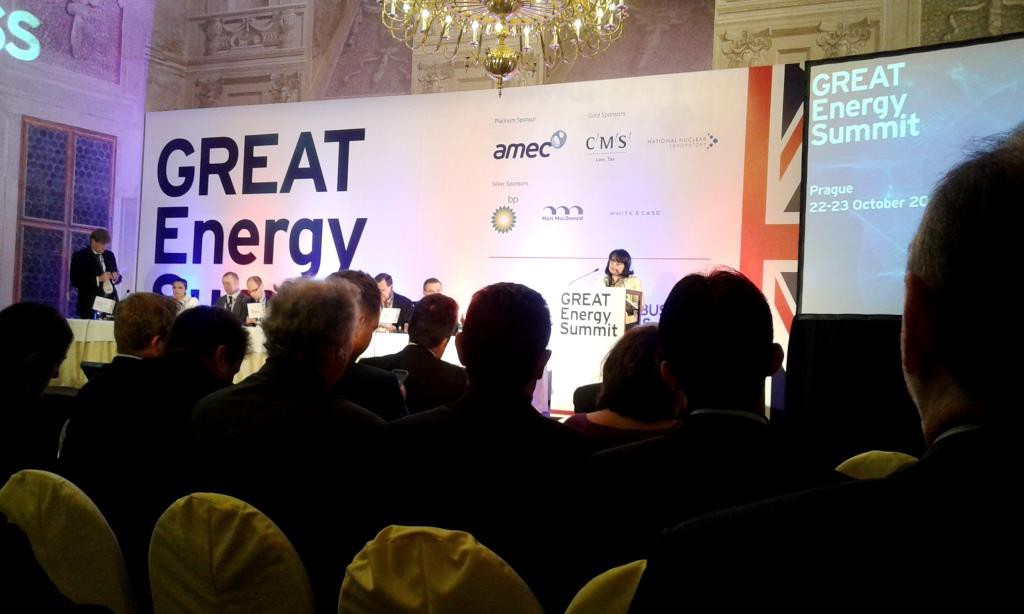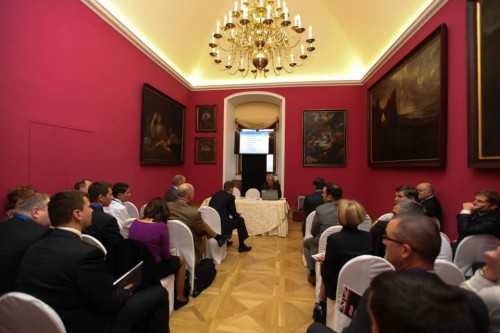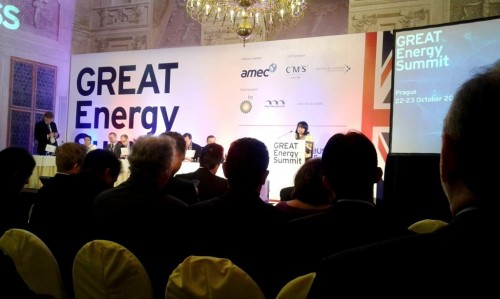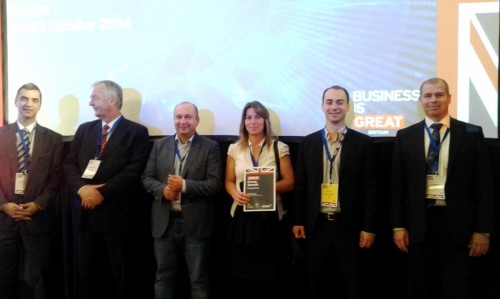27th October 2014 Budapest, Hungary
Canalettos and Brueghels, EU climate and energy policy and fantastic people

I spent two days in the beautiful Prague Castle on 22-23 October. As part of the GREAT Energy Summit in Prague, among Brueghel and Canaletto paintings in the lovely Lobkowitz Palace, energy industry leaders from the UK and Central Europe met to discuss current issues and explore business opportunities.
You can see the lovely surroundings on this photo with Baroness Verma, Parliamentary Undersecretary of the British Department for Energy and Climate Change (DECC) giving her opening speech.
The Central European UK Trade and Investment team brought together nearly 100 senior delegates. I took the photo of the impressive Hungarian delegation with my colleague, Zsuzsa.
Not only does she know everybody who counts in energy, but she has managed to get them come all the way to Prague to the GREAT Energy Summit, the showcase of UK energy sector in Central Europe. Speaking to these experts is an invaluable source of industry knowledge so a bit of extra time with them was a fantastic learning opportunity for me. These snippets of insight into the development of these special markets and their sub-sectors are of enormous help for making sense of the policy environment and how it affects the sector.
The conference took place just a day before the October European Council. Since the Council agenda was dominated by the EU climate and energy policy framework, the subject was brought up in a number of discussions at the conference too. The overarching theme featuring in these discussions was the investment environment. This helped widen the narrative on the EU 2030 framework from merely a climate change one to that of jobs, growth and competitiveness. Since then, EU heads of governments have agreed a historic deal on the EU climate and energy package. This long term signal for investment is key for addressing the problem of underinvestment and the EU’s increasing energy import. Furthermore, if we need to spend hundreds of billions each year to replace and modernise energy infrastructure, whether we decarbonise or not, it would be insane not to do it the low carbon way. British Prime Minister said in the press conference following the council meeting:
“I want to make sure Europe is playing its part in delivering a global deal that can prevent dangerous climate change. I think it was very important that Europe stepped up to the plate, and we have done that, with committing ourselves to more than 40% reductions of greenhouse gases by 2030. But I also think it’s important we try and do this at the least cost: at the least cost to our industries, at the least cost to our consumers. And I believe that is what we have achieved with the deal that was signed yesterday.”
The International Energy Agency (IEA), The Organisation for Economic Co-operation and Development (OECD), the New Climate Economy Report and many other analyses have found that the loss of EU competitiveness is not driven by climate policies, but a lot of other factors such as red tape or the lack of innovation. With the October Council having agreed the high level framework, industry is now waiting for the details to be worked out. And we want this to happen quickly. The delay in investment would cost additional 300 billion Euros every year.

I will keep very good memories of this GREAT event in Prague. As a honorary member of the UKTI organising team, my job was to secure the speakers from the UK line ministry, DECC. I have been working with commercial colleagues in the region for some time as part of the integrated Energy Team of the Central European Network, but this was the first time we have collaborated so closely on a regional commercial project. I have had the chance to gain unique insight into their activities and made me appreciate what they do even better. I have experienced the one team feeling and that we can always rely on each other. I cannot wait to see them again in Budapest at our annual meeting in November!

